Are you tired of the same old investment choices? Looking for an opportunity to purchase a home that offers long-term financial stability and passive income? Well, look no further! Investing in rental property is the answer you’ve been searching for.
With real estate investments, you can tap into a lucrative market that provides a steady stream of income. Whether it’s your first investment property or you’re an experienced real estate investor, rental properties offer a smart way to diversify your portfolio. As a rental property owner, you’ll have the power to control your investment and benefit from the ever-growing demand for housing. So why wait any longer?
Let’s dive into the world of real estate investing and discover how buying a house for investment can be your ticket to financial success.
With proper property management and a keen eye on renters’ needs, you can unlock incredible opportunities for growth and profit in the home purchase market. It’s time to take charge of your financial future and become part of a thriving community of real estate investors who are reaping the rewards of their investments in home prices.
So don’t miss out on this chance to secure your slice of the rental property pie—start exploring real estate investing for capital gains today!
Factors That Can Affect Your Home’s Value
Location
Location is one of the key factors that can greatly influence the value of real estate properties. Whether you’re buying a house for investment in the housing market or as your primary home, the location plays a crucial role in determining its worth.
Homes situated in desirable areas tend to have higher values compared to those in less sought-after real estate markets. Factors such as proximity to amenities, good school districts, and low crime rates all increase property values for real estate investors.
Potential for Home Improvements
When considering real estate properties for investment purposes, real estate investors should assess the potential of homes for improvement. Upgrades and renovations can significantly impact the value of real estate properties.
By strategically enhancing curb appeal, updating kitchens and bathrooms, adding living space, or improving energy efficiency, homeowners can increase the value substantially. These improvements attract buyers in competitive real estate markets who are willing to pay top dollar.
Economic Factors
Economic factors also play a significant role in determining property values in real estate markets. Job growth within an area tends to drive up demand for investment properties, which leads to increased prices.
When there is a strong job market with opportunities for employment nearby, real estate investors are more likely to be interested in purchasing homes in that area. On the other hand, if an area experiences economic decline or high unemployment rates can negatively impact property values in the real estate investment sector.
Neighborhood Amenities
Neighborhood amenities like parks, recreational facilities, and shopping centers can significantly impact property value. Families often prioritize family-friendly neighborhoods with these conveniences when searching for their dream homes.
Additionally, highly rated school districts have attractive features that drive up demand for potential properties within their boundaries, making them a valuable aspect of real estate investment.
Credit Score and Insurance
Factors such as credit scores and homeowners insurance can indirectly influence the values of investment properties and homes. A good credit score demonstrates financial responsibility and may result in better mortgage terms and lower interest rates for loans.
On the other hand, having poor credit may limit financing options or lead to higher borrowing costs. Considering these factors when seeking coverage for your investment properties and homes is important.
Different types of properties have varying values. The price of single-family homes, for example, is often higher than that of condominiums or townhouses due to their larger size and potential for customization. Factors such as square footage, number of bedrooms and bathrooms, overall condition, and buyer demand also affect the cost of a property.
5 Simple Steps to Buy Your First Rental Property in 2023

Determine Your Budget and Financing Options Before Starting the Search
Before embarking on your journey to buy a rental property or investment property, it’s crucial to determine your budget for the home purchase and explore financing options such as loans.
Assessing your financial situation will help you understand how much you, as investors, can afford to invest. Consider factors such as your savings, income, and credit score when setting a budget for investment properties.
Once you have a clear idea of your financial capabilities, explore different financing options for your first investment property. These may include traditional mortgages, private lenders, or even partnerships with other investors. Research investment property loans’ interest rates, terms, and conditions associated with each option to make an informed decision about your investment properties.
Research Potential Rental Markets to Find High-Demand Areas
To ensure a profitable investment for investors, research potential rental markets diligently. Look for areas with high demand for rental homes and low vacancy rates. Analyze factors like population growth, employment opportunities, and local amenities that attract tenants. Consider the cost of different home loan options.
Consider consulting real estate agents or online platforms that provide market insights for investment properties. They can offer valuable information about rental trends in specific neighborhoods or cities, helping investors identify high-demand areas early on.
This increases the likelihood of finding reliable tenants for their homes. Additionally, it’s important for investors to explore different home loan options to make informed decisions.
Conduct Thorough Inspections and Due Diligence on Prospective Properties
Once you’ve identified potential homes, don’t rush into making an offer blindly. Conduct thorough inspections and due diligence to ensure the homes meet your requirements.
Hire professional inspectors who can assess the condition of the homes’ structure, plumbing systems, electrical wiring, and any potential maintenance issues. This is important for investors looking for different home loan options to consider the cost.
When considering a rental or investment property, research the neighborhood’s crime rate and proximity to essential facilities like schools and hospitals. This step is crucial as it helps minimize unexpected expenses related to the cost of homes down the line while ensuring tenant satisfaction.
Calculate Potential Rental Income and Expenses to Assess Profitability
Determining the profitability of rental homes requires careful calculation of both income and expenses. Estimate the monthly rental income based on market rates in the area you’re targeting.
Consider factors like property size, location, and amenities to arrive at a realistic figure. It is important to invest wisely and consider the cost of the investment. Additionally, using a scoring formula can help assess the potential profitability of the property.
On the expense side, account for mortgage payments, property taxes, insurance premiums, maintenance costs, potential vacancies, and your credit score. By subtracting your total expenses from the rental income, you can assess whether the investment is financially viable. Also, consider different coverage options and the scoring formula used to calculate ratings.
Make an Offer, Negotiate Terms, and Close the Deal with Legal Assistance
Once you’ve found a property that aligns with your home goals and budget, it’s time to make an offer. Consult with a real estate agent or lawyer who specializes in investment properties to guide you through this payment process. They can help draft a purchase agreement that protects your interests and includes the cost formula.
During negotiations for an investment property or rental property, be prepared to discuss terms such as price adjustments, payment, closing dates, and contingencies. Remember to stay firm on your budget and objectives while being open to reasonable compromises. Once both parties agree on the terms, proceed with closing the deal by signing all necessary legal documents.
By following these five simple steps: determining your budget and financing options for the cost; researching potential rental markets for credit scores; conducting thorough inspections for coverage; calculating potential rental income and expenses for payment; making an offer; negotiating terms; and closing the deal, you’ll be well on your way to buying your first rental property in 2023. Happy investing!
Understanding Rental Income Taxes and Property Taxes
Rental income is an excellent way to generate additional revenue for your home, but it’s important to understand the tax implications that come with it, including payment and cost. When you earn rental income from a residential or commercial property, you are subject to federal, state, and local taxes.
To ensure you’re maximizing your deductions and minimizing your liabilities, let’s delve into the world of rental income taxes and property taxes and explore home ratings.
Rental Income Taxes
When investing in a rental property or investment property, it’s important to consider the cost and potential tax implications. All rent payments, including monthly rent and additional fees for services or amenities, count as taxable income.
To calculate your annual rental income for tax purposes on your investment property, simply add up all the rent payments you receive over the course of a year. Your credit score, the price of the property, and the scoring formula can all have an impact on this number when filing your tax return.
However, when considering your investment property, it’s important to remember that not all rental income is subject to taxation. Certain expenses, such as the cost of maintaining the property and mortgage payments, can be deducted from your total rental income before calculating taxable earnings.
These deductible expenses can greatly reduce your overall tax burden, especially if you have a high credit score.
- If you have a mortgage on your investment property, you can deduct the interest paid on that loan from your home payment. This can help reduce the overall cost of your mortgage and potentially improve your credit score.
- Home repairs: Expenses related to home repairs and maintenance are generally deductible. Payment for these costs can be covered by various coverage options.
- Property Management Fees and Payment: If you hire a property management company to handle tenant-related matters, their fees and costs can be deducted as well. This deduction is applicable regardless of your credit score. Additionally, when it comes to coverage options, a property management company can provide you with various choices.
- Account Fees: Any fees incurred for maintaining bank accounts specifically for managing investment properties can also be deducted. These fees can include payment processing costs as well as fees associated with monitoring and managing the financial aspects of the property. It’s important to note that these deductions are subject to certain eligibility criteria, such as a satisfactory credit score.
Property Taxes
In addition to the cost of purchasing a home, property owners must also consider property taxes as part of their payment. The amount owed varies depending on location and is calculated based on the assessed value of the property. This can impact your credit score.
The good news is that property taxes are generally deductible on your federal tax return. This means you can subtract the payment for property taxes from your taxable income, reducing the overall tax cost.
To ensure you’re accurately reporting and maximizing your deductions for rental income and property taxes, consulting with a tax professional is highly recommended. They have the expertise to guide you through the complex world of real estate taxation, helping you identify all eligible deductions and minimize potential liabilities.
This will help you manage the cost of owning a home and ensure timely payments. Additionally, they can provide guidance on how your credit score may impact your tax situation.
The Benefits of Mortgage Financing for Investment Properties
Mortgage financing is a valuable tool for rental property investment. It offers several benefits, including helping you maximize returns and make the most of your investment capital. Your credit score is important when applying for mortgage financing, as it affects the cost of your payment.
Leveraging Your Investment Capital
One of the key benefits of mortgage financing is the ability to leverage your investment capital. Instead of using all your available funds to purchase a property outright, you can secure a mortgage loan from reputable lenders.
This allows you to spread your capital across multiple investments, diversifying your portfolio and potentially increasing your overall return on investment. Additionally, with various credit and payment options, you have the flexibility to choose a plan that suits your financial needs. The customizability of mortgage loans provides coverage options tailored to your specific requirements.
Taking Advantage of Low-Interest Rates
Another advantage of opting for mortgage financing is the current low interest-rate environment. Interest rates play a crucial role in determining the affordability and profitability of an investment property purchase.
With credit options at historically low levels, now is an opportune time to finance an investment property. By locking in a favorable interest payment, you can reduce borrowing costs and increase cash flow. The coverage options and customizability of mortgage financing provide additional benefits for investors.
Rental Income Coverage
Investing in an investment property often involves renting it out to generate income. One important advantage of using mortgage financing is that rental income from tenants can pay for monthly mortgage payments.
This means that as long as you have reliable tenants who pay rent regularly, their payments can contribute towards servicing your mortgage debt. Consequently, this reduces the financial burden on you as an investor and increases cash flow potential.
Additionally, having good credit is crucial when seeking a mortgage for an investment property. It affects the interest rate and overall cost of the loan. It’s important to explore different coverage options to protect your investment property from potential risks.
Tax Deductibility
Mortgage interest payments become a vital factor for investors. The mortgage interest paid on investment properties is typically tax-deductible, which helps reduce overall tax liability. By deducting these expenses from your taxable income, you effectively lower the amount owed in taxes each year.
This deduction can significantly impact the cost of credit and improve cash flow by reducing expenses associated with your home investment property.
Exploring Different Home Loan Options
Mortgage financing offers a wide range of loan options for various investor needs, including credit, coverage, customizability, and cost. From conventional loans to specialized programs, borrowers have the flexibility to choose the most suitable mortgage for their investment property.
Some lenders even offer payment assistance programs or customized loan terms that cater specifically to real estate investors. Researching and understanding these different home loan options can help you find the right fit for your investment strategy.
Maximizing ROI: Strategies for Real Estate Investing
Implementing Effective Marketing Strategies Attracts Quality Tenants Quickly
One of the key factors in maximizing your return on investment (ROI) is attracting quality tenants quickly. Effective marketing strategies can make all the difference in filling your property with reliable tenants who will pay their rent on time and take care of the property, ensuring a positive customer experience.
Additionally, offering competitive costs and flexible payment and coverage options can further enhance the appeal of your property to potential tenants.
Create Compelling Home Listings
To start, focus on creating compelling home listings that highlight your investment property’s unique features and benefits. Utilize high-quality photographs that showcase the best aspects of the house, such as spacious rooms or a beautiful backyard.
Consider using virtual tours or videos to provide potential tenants with an immersive experience. Additionally, keep in mind the cost and customizability of the property, as these factors can greatly impact the ratings and desirability of potential tenants.
Beyond traditional listing platforms, explore other avenues for marketing your rental property and enhancing the customer experience. Leverage social media platforms like Facebook or Instagram to reach a wider audience and showcase your home’s coverage options.
Networking within Real Estate Circles
Engage with local communities by posting in relevant neighborhood groups or utilizing targeted advertising campaigns to boost your ratings.
Networking within real estate circles can also be highly beneficial for improving the customer experience. Connect with local real estate agents specializing in rentals and tell them about your available property. They may have clients actively searching for rental opportunities. This can lead to higher ratings and lower costs for you as a landlord.
By implementing these effective marketing strategies for your rental property, you increase your chances of attracting quality tenants quickly and reducing vacancies, ultimately maximizing your investment property’s return on investment (ROI). These strategies also contribute to enhancing the customer experience and minimizing costs.
Regular Maintenance Ensures the Longevity of Your Investment Property
Investing in a home goes beyond simply purchasing a property; it requires ongoing maintenance to ensure its longevity and preserve its value. Regular payment not only keeps tenants satisfied but also prevents minor issues from turning into costly repairs down the line. The customer experience is enhanced when there is customizability in the maintenance process.
Creating a Maintenance Schedule
Create a maintenance schedule for your rental property, including routine inspections and necessary repairs. This proactive approach allows you to identify any potential problems before they escalate into major issues that could impact tenant satisfaction and your investment property’s bottom line.
Address Repair Requests from Tenants
Promptly address any repair requests from tenants in your rental property to maintain positive landlord-tenant relationships and enhance the customer experience. A responsive approach demonstrates that you care about their comfort and well-being, which can lead to longer tenancies and reduced turnover. This is especially important for investment property owners who value customizability.
Outsource Home Maintenance Tasks
Consider outsourcing home maintenance tasks to professional contractors or property management companies if you lack the time or expertise. They can handle everything from landscaping and HVAC servicing to plumbing and electrical repairs, ensuring your investment property remains in top condition.
This can help reduce the cost of repairs and improve the customer experience by ensuring prompt and efficient service. Additionally, these professionals can offer flexible payment options to accommodate your needs.
By prioritizing regular maintenance, you safeguard your investment and enhance the customer experience, reduce costs, and ensure smooth payment processes. This creates a positive environment for tenants, leading to increased satisfaction, customizability, and potentially higher rental rates.
Consider Long-Term Appreciation Potential When Selecting Properties
When buying a home for investment purposes, it’s crucial to consider the long-term appreciation potential and the cost implications. While rental income is important for immediate cash flow, the value of the property itself can significantly impact your ROI over time. It’s also essential to explore different payment and coverage options.
Market Trends and Historical Data
Research market trends and analyze historical data to identify areas with strong appreciation potential and low costs. Look for neighborhoods experiencing growth in terms of infrastructure development, job opportunities, and population influx. These factors contribute to increased demand for home coverage options, which can drive up property values and ratings in the long run.
Potential Impact on Property Value
Furthermore, when considering any planned developments or revitalization projects in the area, it is important to pay attention to the potential impact on property values as well as the cost and coverage options for insurance ratings and payments. These initiatives often indicate future growth and can have a positive effect.
Rental Demand, Cost, Coverage Options, and Cash Flow
While focusing on the long-term appreciation potential of your investment property is essential, don’t overlook other factors such as rental demand, cost, coverage options, and cash flow. Striking a balance between immediate returns and future appreciation will help you maximize your overall ROI and ensure a positive customer experience.
Assessing Risk and Reward in Real Estate Investments
Before diving into the world of real estate investing, it is crucial to assess the cost, ratings, and customer experience associated with such ventures. By conducting a thorough risk assessment, evaluating market conditions, and understanding potential rental demand, you can make informed decisions that maximize your investment’s potential.
Conduct a Thorough Risk Assessment Before Investing in Real Estate
Investing in real estate involves various risks that could impact your financial stability, including the cost of purchasing a home. To mitigate these risks, it is essential to perform due diligence before making any investment decisions.
Start by researching the current state of real estate markets and analyzing trends. This will help you identify areas with high growth potential and minimize the chances of purchasing property in declining markets. Additionally, it is important to consider different coverage options for your home to protect your investment.
Consider factors such as interest rates and economic conditions that may affect home values. Higher interest rates can increase borrowing costs, potentially impacting your return on investment. By staying informed about these factors, you can adjust your strategies accordingly.
Additionally, reviewing coverage options and ratings is important to ensure you have the right home insurance. Insurers use a scoring formula to determine premiums, so understanding these factors can help you make informed decisions.
Evaluate Market Conditions and Potential Rental Demand to Gauge Reward Potential
Understanding the local real estate market is crucial for assessing an investment’s potential cost and reward. Analyze historical data on property values to identify patterns or trends that indicate growth or decline.
Keep an eye out for areas experiencing revitalization or attracting new businesses, as they often offer excellent investment opportunities for a home. Consider customer experience ratings in these areas to make informed decisions.
Moreover, when considering an investment property, it’s important to research rental demand in the area where you plan to invest. Look into vacancy rates and average rental prices to determine if there is a strong demand for housing.
Areas with low vacancy rates and increasing rental prices suggest a favorable environment for investors seeking steady cash flow from rentals. This information will help you make informed decisions about your investment property and the cost of coverage options.
Diversify Your Investment Portfolio to Mitigate Risk
While real estate investments, such as rental properties, can be lucrative, it’s important not to put all your eggs in one basket. Diversifying your investment portfolio helps spread out risk across different asset classes and reduces vulnerability to fluctuations within a single market. When considering rental property investments, it’s crucial to research cost and coverage options.
Consider allocating funds towards other forms of investment, like stocks or bonds, alongside rental property holdings. This diversification strategy helps protect your overall financial health and provides a safety net in case the real estate market experiences a downturn. Explore coverage options for your rental property to manage costs.
Understand the Risks Associated with Property Management and Tenant Turnover
Investing in real estate often involves managing properties and dealing with tenants. It’s crucial to be aware of the potential risks, costs, and customer experience associated with these responsibilities.
Property management requires time, effort, and expertise to ensure proper maintenance, handle tenant issues, collect rent consistently, and offer various coverage options. Additionally, it’s important to consider property management ratings for an informed decision-making process.
Tenant turnover can also impact your rental property investment returns. High turnover rates lead to increased vacancy periods, which can disrupt cash flow and the customer experience.
To mitigate this risk, consider screening potential tenants thoroughly to find reliable individuals who are likely to stay long-term. Additionally, it’s important to assess the cost and coverage options for rental property insurance.
Key Considerations when Buying a House for Investment
Investing in real estate can be a lucrative endeavor in terms of cost and potential returns. However, it’s important to carefully consider it and weigh the coverage options available. Before purchasing a property as an investment, you should keep several key factors in mind to ensure a positive customer experience.
From defining your investment goals to understanding local regulations, here are some essential considerations to guide you through the process: According to NerdWallet, these steps will help you make informed decisions and maximize your real estate investment.
Determine Your Investment Goals and Strategy Before Purchasing a Property
Before diving into the world of real estate investing, take the time to define your investment goals and establish a clear strategy. Consider the cost and coverage options available to you.
Are you looking for short-term gains or long-term appreciation? Do you plan on renting out the property or flipping it for profit? Understanding your objectives will help shape your decision-making process and ensure that you choose a property that aligns with your specific goals. This will ultimately contribute to a positive customer experience.
Research Local Housing Regulations and Landlord Laws to Ensure Compliance
When investing in an investment property, it’s crucial to familiarize yourself with local housing regulations and landlord laws. Each area may have its own set of rules governing rental properties, such as occupancy limits, safety requirements, and eviction procedures.
By conducting thorough research beforehand, you can avoid potential legal issues down the line and ensure that you operate within the confines of the law. Additionally, it’s important to consider the cost and coverage options for your investment property. Providing a positive customer experience is also key to attracting and retaining tenants.
Analyze the Potential Return on Investment (ROI) Based on Rental Income and Expenses
To make an informed decision about buying a house for investment purposes, it’s essential to analyze its potential return on investment (ROI) and consider coverage options. Consider factors such as rental income projections, vacancy rates in the area, and ongoing expenses like property taxes, insurance premiums, maintenance costs, and utilities.
By crunching these numbers, you can determine whether the property has the potential to generate positive cash flow over time and provide a great customer experience.
Consider the Long-Term Maintenance Costs of the Property
Owning an investment property comes with ongoing maintenance responsibilities. It’s crucial to factor in these costs when evaluating coverage options to determine whether a particular house is worth investing in.
Consider expenses such as repairs, upgrades, landscaping, and general upkeep. By estimating the long-term maintenance costs, you can better assess the overall profitability of the investment and determine the best coverage options.
When buying a house for investment purposes, it’s important to approach the process with careful consideration. Defining your investment goals and strategy will help guide your decision-making process. Researching local housing regulations and landlord laws ensures compliance and avoids legal issues.
Analyzing the potential ROI based on rental income and expenses provides insight into profitability. Lastly, considering long-term maintenance costs allows for a more accurate assessment of the investment’s viability.
Investing in rental property can be an exciting venture that offers financial rewards when approached strategically. By keeping the cost and other key considerations in mind, you’ll be well-equipped to make informed decisions when purchasing a house for investment purposes.
Remember: Successful investment property and rental property investing requires thorough research, careful planning, and a clear understanding of your objectives. So take your time, explore different options, and choose wisely!
The Bottom Line
In conclusion, buying a house for investment can be a smart financial move with the potential for significant returns. By considering factors that can affect your home’s value and following simple steps to buy your first rental property, you can set yourself up for success in 2023. Understanding rental income taxes and property taxes is essential to maximizing your profits and making informed decisions.
One of the benefits of mortgage financing for rental properties is that it allows you to leverage your investment and potentially increase your return on investment (ROI). By implementing strategies such as maximizing ROI and assessing risk and reward, you can further enhance the profitability of your rental property investments.
When buying a house for investment, key considerations include location, market trends, property condition, and potential rental income. These factors play a crucial role in determining the success of your investment.






